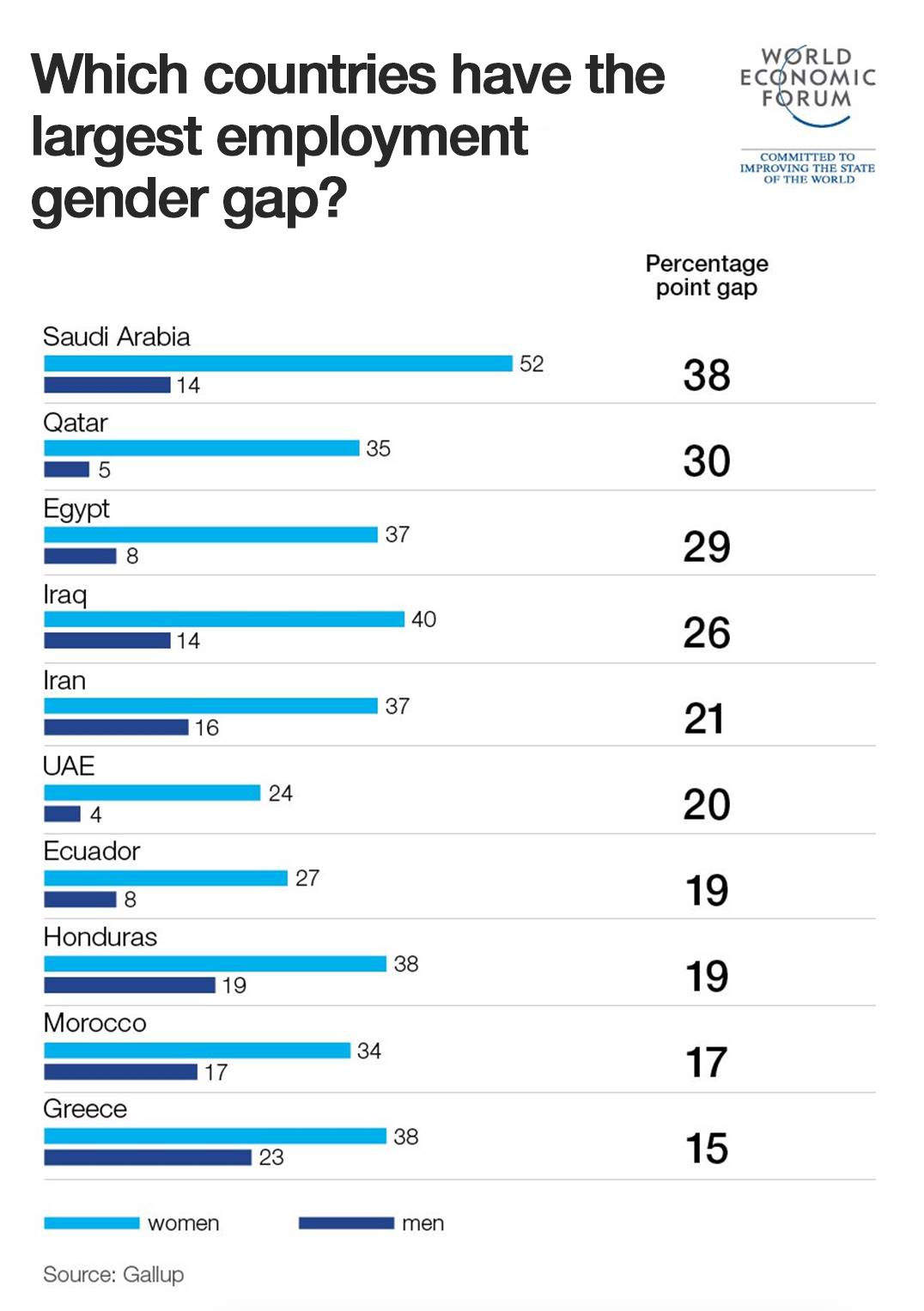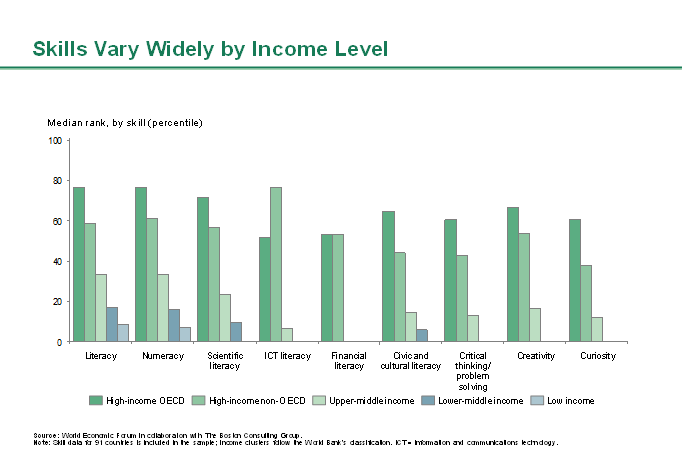What is the future of work?

Back to school ... education needs to be brought up to date with business practices and the job market Image: REUTERS/Beawiharta
The scale of the employment challenge is vast. The International Labour Organization estimates that more than 61 million jobs have been lost since the start of the global economic crisis in 2008, leaving more than 200 million people unemployed globally.
Nearly 500 million new jobs will need to be created by 2020 to provide opportunities to those currently unemployed and to the young people who are projected to join the workforce over the next few years.
At the same time, many industries are facing difficulty hiring qualified staff. One 2015 survey found that, globally, 38% of all employers are reporting difficulty filling jobs, a two-percentage point rise from 2014.

What’s the main issue?
Put simply, we need jobs for the hundreds of millions of unemployed people around the world, and we need the skilled employees that businesses are struggling to find.
Young people – young women especially – are disproportionately affected by unemployment across all regions, resulting in a youth unemployment rate that is nearly three times higher than the rest of the population. Close to 90% of the necessary job creation must take place in the developing world, primarily in Africa and Asia, given that this is where the projected needs will be most pronounced.

It is not just the young who are vulnerable, though. Older workers in ageing economies are often failing to find viable livelihoods as industries evolve. Despite the high unemployment in many regions and across various age groups, skills mismatches and gaps in existing education systems are hindering the effective deployment of countries' talent.

Why is this happening?
There are two major pressure points in the chain of education, skills and human capital.
1. Job growth and technological change
In many countries there has been a drop in unemployment numbers since the global financial crisis, but there is some evidence that this is not so much due to jobs growth as because the long-term unemployed are giving up on trying to find a job.
Technology is changing industries at a rapid pace and the labour market is therefore entering a period of uncertainty. Managing this transition is an important challenge, as is preparing for the future beyond an expected increase in automation.

2. Skills gap and skills churn
The types of skills that employers need are changing all the time. Employees are under pressure to continually learn and adapt to evolving and emerging industries. As technology further reshapes business needs, both individuals and countries will have to address ongoing skills gaps.Traditional education is often badly equipped to develop dynamic skills in students. Most schools and universities are teaching a 20th-century education to young people who will need cutting-edge 21st-century skills. This is an issue that calls for long-term commitment to reform from successive generations of political leaders.

So what needs to change?
Advances in technology and the Fourth Industrial Revolution mean there needs to be systemic change in education and training. The changes can be broken down into three key areas.
1. Connecting education and employment
Employers need to collaborate with schools and universities on the development of curricula and a shared practical knowledge of the market. The education system also needs to change to allow a focus on lifelong learning.
2. Improving forecasts
Better forecasting of industry and labour-market trends is vital to allow governments, businesses and individuals to react quickly to change. Big data is likely to prove pivotal in developing more accurate predictions of where the jobs market is moving and where the skills shortages are expected to lie.
3. Disrupting education and labour policy
While there has been impressive progress in improving access to education, the quality and relevance of learning has rarely been improved on any scale. At the same time, government policy has lagged behind when it comes to skilling the national workforce. Education and labour policy need to be re-examined to make them more reactive and relevant to the ever-changing market realities.
What is the World Economic Forum doing about it?
The Forum is encouraging the exchange of knowledge to enable analysis and insights on this challenge to be shared as widely as possible. At the same time, it is creating a platform for collaboration and partnership between business, government, civil society and the education sector to identify key areas of intervention where public-private collaboration can target unemployment and skills shortages. Stronger links between employment and education are key.
The Forum’s Human Capital Report, launched in April 2015, provides a snapshot of a country’s performance in developing and deploying human capital. This provides a key yardstick against which future progress can be measured.
The Disrupting Underemployment portal was launched by the Forum in March 2015 and aims to share innovative solutions to the jobs and skills crisis that are being used by businesses around the world.
Another key piece of work, the Future of Jobs Report, is to be launched at Davos 2016 and will provide a valuable tool for leaders and individuals to anticipate and prepare for the workplace of tomorrow.
Click here for more information on the Forum's Global Challenge on Education, Skills and Human Capital.
Don't miss any update on this topic
Create a free account and access your personalized content collection with our latest publications and analyses.
License and Republishing
World Economic Forum articles may be republished in accordance with the Creative Commons Attribution-NonCommercial-NoDerivatives 4.0 International Public License, and in accordance with our Terms of Use.
The views expressed in this article are those of the author alone and not the World Economic Forum.
Stay up to date:
Future of Work
Forum Stories newsletter
Bringing you weekly curated insights and analysis on the global issues that matter.






